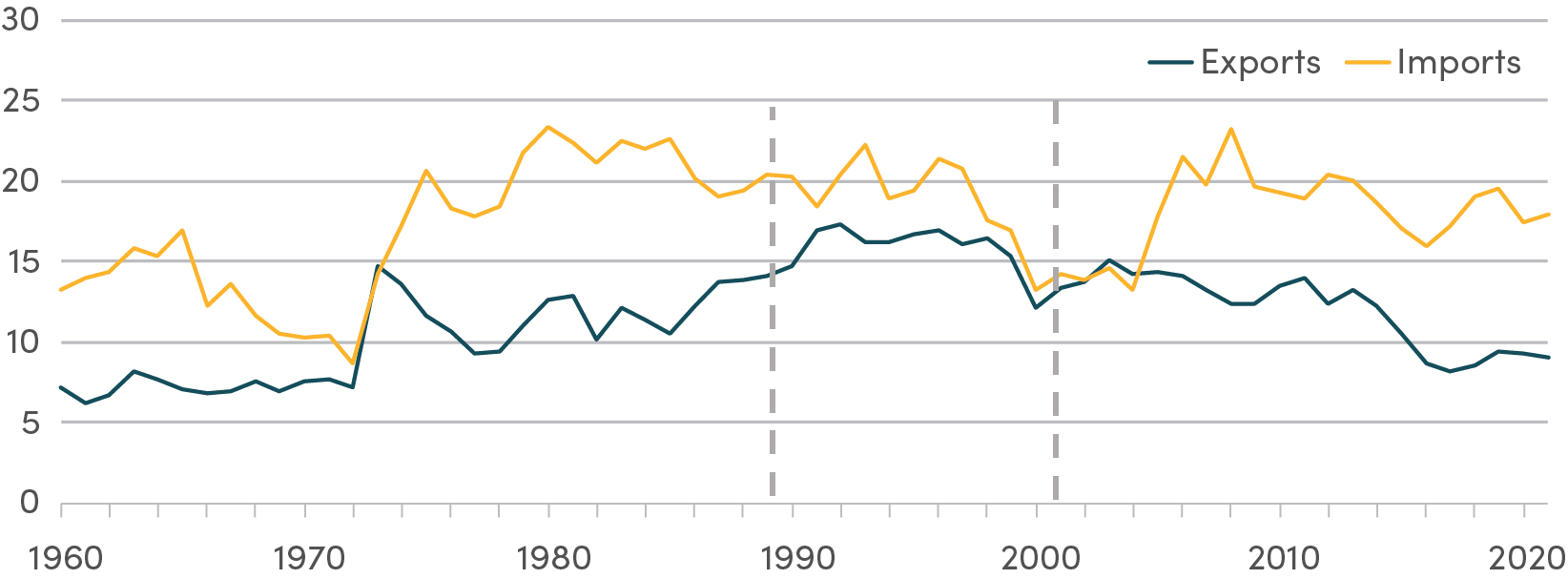You can read our full policy note here.
Last week, a UN official said that the recent violence against Rohingya has “the hallmarks of a genocide,” underscoring why the plan to repatriate refugees to Myanmar is shockingly premature. While it is far too soon to discuss returns, it is the right time to plan for the longer-term wellbeing of refugees and their host communities in Bangladesh. Cox’s Bazar, a district of about 2.3 million people, is now hosting 900,000 Rohingya, more than 688,000 of whom have arrived since August 2017.
The refugee compacts model—deployed in Jordan and Lebanon now, and soon Ethiopia—offers a promising way forward. Compact agreements bring together the host government, donors, and the international community to develop multi-year commitments aimed at fostering inclusive growth and opportunity for refugees and host communities. As in the Jordan Compact, a key component should be policy reforms, such as the ability for refugees to work, own businesses, and attend school; in turn, these reforms enable refugees to become economic contributors to their host countries.
This CGD policy note argues that Bangladesh and its partners should explore the compact model and consider the inclusion of three ideas that would yield the level of ambition necessary to generate a sustainable response: European Union (EU) trade concessions, migrant worker opportunities, and partnership with China and the Asian Infrastructure Investment Bank.
1. Expanding Bangladesh’s trade preferences with the European Union
Bangladesh is set to lose trade preferences with the EU and other countries when it graduates from least developed country (LDC) status. More than half of Bangladesh’s exports went to the EU in 2016, about 90 percent of which was textiles and clothing. Upon graduation from EU and other trade preferences, Bangladesh’s export revenue could decline by well over an estimated 5 percent. A compact could extend preferences, bringing significant benefits to Bangladesh without affecting the EU’s fiscal situation. Another potential opportunity that could have more immediate impact is further relaxing rules of origin in emerging sectors such as pharmaceuticals and agri-processing.
2. Increasing opportunities for Bangladeshi migrant workers
A compact could break new ground by including provisions for greater numbers of Bangladeshi migrant workers in the Gulf and Southeast Asia. Raising quotas could help meet labor demand and increase earning opportunities for Bangladeshis—and potentially for refugees as well. Labor migration is a fundamental component of Bangladesh’s economy: in 2015, remittances accounted for about 8 percent of GDP, the second-largest source of foreign income after garment exports. But given the exploitation and abuse that migrant workers experience, any compact should simultaneously seek to strengthen protections for workers. By participating in a compact, Gulf states could strengthen their nascent role in refugee response, building on their contributions to the Syrian crisis and initial support to Rohingya refugees, on mutually beneficial terms.
3. Partnering with China and the Asian Infrastructure Investment Bank
Bangladesh is an important strategic and economic partner for China. More than a third of Bangladesh’s imports come from China—and more importantly, Bangladesh is a critical link in China’s Belt and Road Initiative (BRI). One of the six BRI economic corridors would connect Bangladesh, Myanmar, India, and China, including the construction of a new port in Bangladesh. The Chinese-led Asian Infrastructure Investment Bank (AIIB) is playing an important complementary role, including financing energy projects. Given the reality of protracted displacement, China has an incentive to invest in a solution that promotes inclusive growth and stability in Bangladesh. China could enhance current trade preferences by granting zero tariffs to a greater proportion of Bangladeshi products. It could also accelerate or expand BRI and AIIB projects in Bangladesh and include provisions for Rohingya employment in their implementation.
Although refugees can become economic contributors with supportive policies and investments, the politics can be very difficult. A compact can offer a path forward by creating a package of new and substantial development opportunities for Bangladeshi citizens and Rohingya refugees.
CGD blog posts reflect the views of the authors, drawing on prior research and experience in their areas of expertise.
CGD is a nonpartisan, independent organization and does not take institutional positions.




